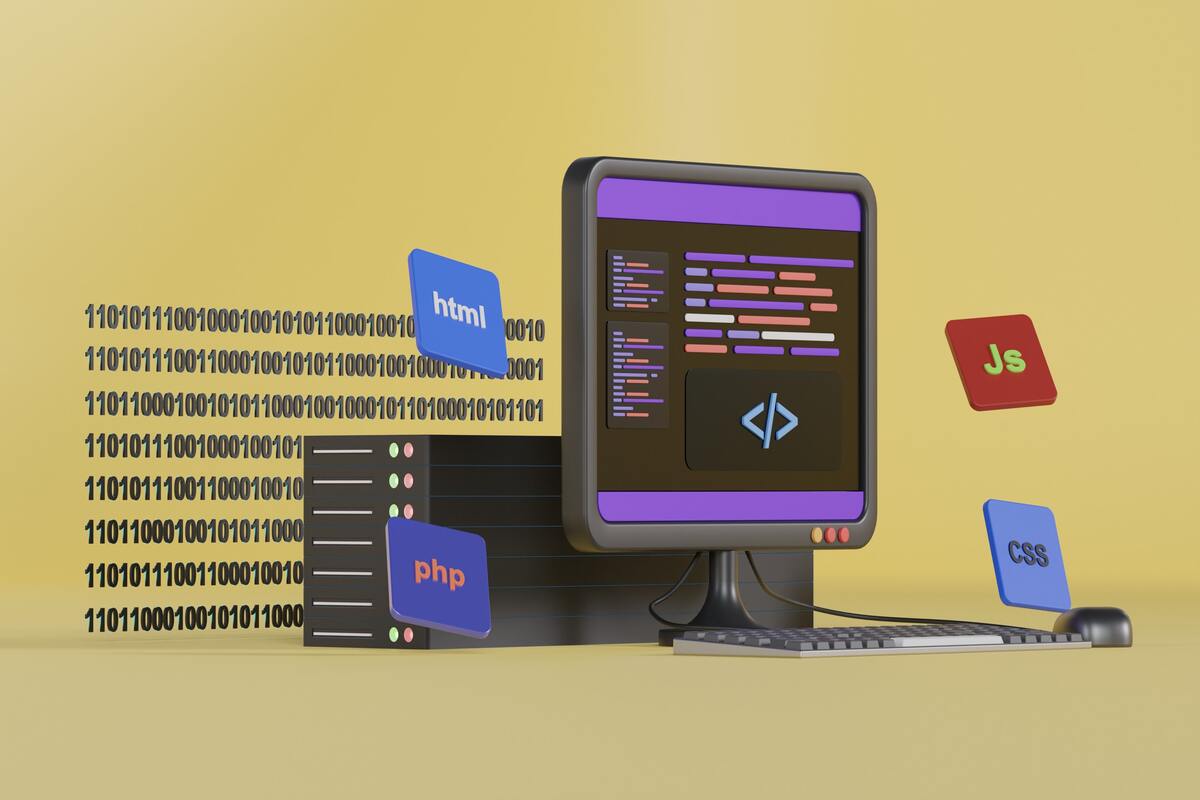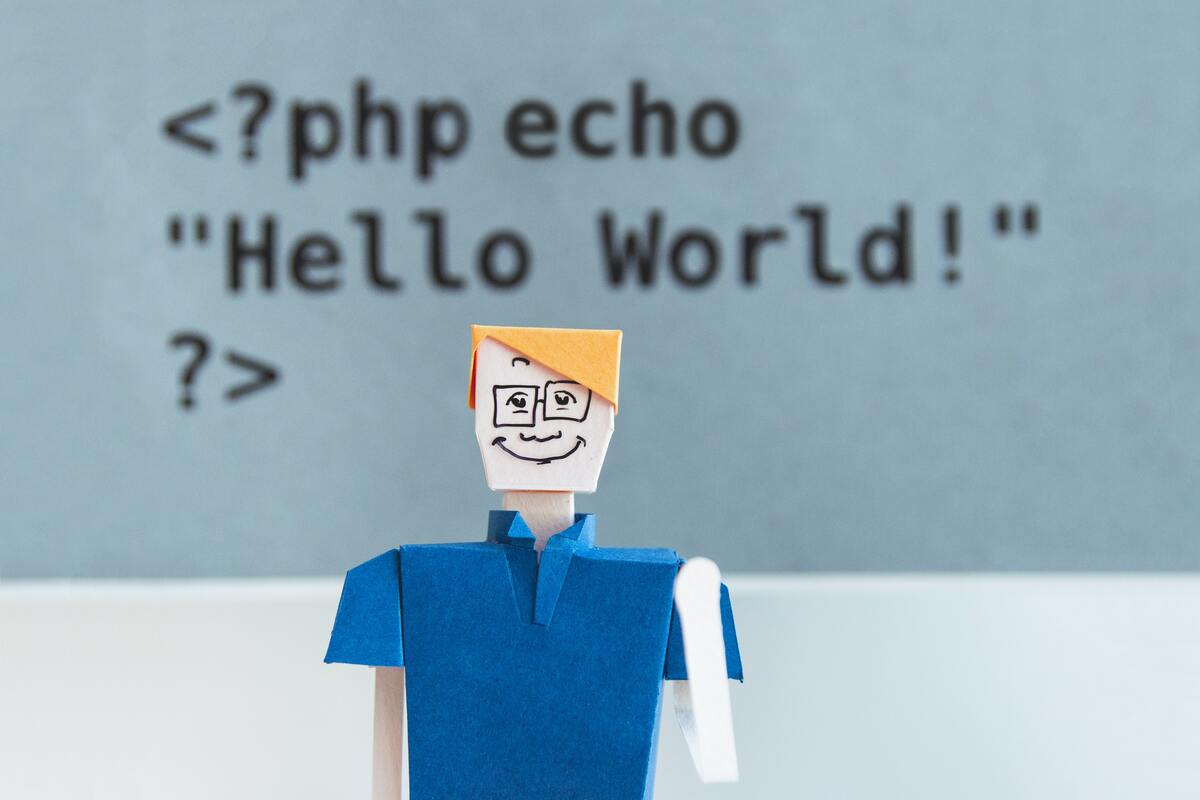PHP is the most popular open-source, multipurpose server-side scripting language for building dynamic websites and apps (short for Hypertext PreProcessor).
Online events are brought about through PHP. If you are a business owner, website owner, or entrepreneur, PHP can assist you in promoting your brand, connecting with clients, increasing productivity, and more.
It is a component of several of the most widely used website platforms, including Drupal, Joomla, Magento, and WordPress.
Server scripts are written in PHP. It implies that PHP scripts (pieces of code) are handled on a web server before being transmitted to the user.
PHP’s server-side script processing allows it to build dynamic, quickly loaded websites that give consumers personalized experiences.
Additionally, it is supported by all popular servers, web browsers, operating systems, and cloud computing platforms. The name, which stands for PHP Hypertext Preprocessor, is a recursive acronym.
Any acronym in which the initial letter is a component is referred to as recursive. A lot of technology and internet-related terms use this kind of abbreviation.

What Is The Purpose Of PHP?
Since PHP is a very versatile scripting and programming language compatible with a wide range of development tools, it is used to create almost anything that functions on a web server.
Because of this, PHP creates a wide range of websites, including everything from complex social media sites to e-commerce websites.
Additionally, it is a fantastic tool for building customized functionality included on a website.
Examining PHP’s present applications will give you a decent notion of what is feasible.
PHP is used by most websites on the internet, including those run and owned by people who have never heard of it.
It is because PHP is frequently utilized to create the platforms, themes, plugins, and applications website creators employ.
A number of the most popular websites also employ PHP. For instance, Facebook was first developed using PHP.
Despite creating a customized version of PHP, it continues to use that language. Another significant PHP player worth mentioning is Wikipedia. It is powered by MediaWiki, a program built in PHP.
PHP is also used to build numerous web hosting platforms and content management systems (CMS) like WordPress.
To put it another way, it would not be unexpected if the following were true of your website:
Website hosting – PHP is frequently used by website hosting companies to supply their hosting services, so PHP is probably already present on your website host.
WordPress – WordPress is the most popular online content management system (CMS). PHP is used if WordPress is used to create your website.
The theme – of your website will determine some of its functionalities and how it appears visually. In PHP, website themes are frequently created.
Plugins – Plugins provide the majority of the functionality on your website. Once more, PHP is frequently used in the development of plugins.
Unique Functionality – If your website has any custom functionality, it may have been created using PHP.
PHP is the right choice in several development situations. It includes:
- New websites are developed during their development.
- PHP is used to create your website, and you want to add new features.
- To enhance existing code and functionality created in PHP.
- To migrate to a new platform, PHP is used.
PHP is frequently employed in more particular use cases to carry out front-end actions requested by users or website visitors, access data, and run back-end operations on websites and online apps.
PHP has almost limitless possibilities, so if you want to create something that your clients, team, community, or partners can access through a web browser, PHP should be able to handle it.
What Distinctions Exist Between PHP And HTML?
Due to the distinction between PHP and HTML, we’ll start with the technical response:
As mentioned, HTML is a markup language, but PHP is a scripting language. It is easier to grasp, even though it might not appear that way at first.
It is because most websites and web applications require both PHP and HTML. HTML is used to create the website’s architecture.
For instance, the placement of the headings, photos, and other elements. PHP programs add it. The styling is then provided by CSS to add another element.
As a result, even the most basic websites need all three (PHP, HTML, and CSS) because they each serve a different but equally important purpose.

What Are The Benefits Of PHP?
Some benefits of PHP language are:
Platform Independent:
Operating systems like Linux, Windows, and Apple are all platforms on which PHP is supported. It gives it a lot of versatility and flexibility because you can use it without worrying about compatibility.
Open Source And Free:
PHP is free to use for everyone and is open-source. It differs from some of the alternatives because of this.
Syncs With All Databases:
The most popular databases, such as MySQL and Oracle, can be synced using PHP.
It makes PHP ideal for any website or web application, including complex, database-heavy applications.
Powerful Scripting Language:
PHP is used to create any web-based application, feature, or website. Despite being open-source and free, one of the most effective tools available.
The fact that PHP is open-source and numerous individuals and organizations have contributed to its development is undoubtedly a plus.
Supported By Web Hosting Services:
Because PHP is a server-side scripting language, it is only used on web servers managed by hosting firms.
Almost all web hosting companies provide PHP support. Therefore, many alternatives are more constrained than PHP because this differs from the alternative.
Website Users Don’t Need To Install Anything:
It is optional for website visitors to have PHP installed on their computers or mobile devices because PHP is a server-side scripting language.
Your website or app must be viewed in a widely used web browser, such as Chrome, Safari, Firefox, etc.
Up To Date:
As the internet, new technology, and user expectations advance, PHP’s creators maintain it current by releasing updates and new iterations.
Strong Support Community:
Since PHP was invented in 1994, it has been an industry leader with a sizable and knowledgeable support community.
It is all made easier to find solutions, eliminate issues, and adhere to best practices.
Is PHP Still Relevant?
Relevance questions are relatively easy to locate, as is the case with everything on the internet that was invented before the middle of the 1990s.
Given that there are several PHP alternatives, including those that are much more recent, the topic of relevancy also frequently arises.
Examples in use today include Python and NodeJS. The truth is that PHP is still incredibly popular and may be found in some capacity on most websites accessible today.
A web application that doesn’t use any PHP tools or capabilities will still use PHP if it is powered by a content management system (CMS) such as WordPress.
Additionally, PHP is still as strong, adaptable, and practical as ever. As a result, there is almost no chance that PHP will abandon or the development community will transfer to another language soon.

What Are The Benefits Of Hiring A PHP Developer?
The next step after utilizing PHP is creating your PHP script. Hiring a PHP developer or writing the PHP code yourself are the two main possibilities.
PHP can generally be learned by anyone who wants to study programming. Many other programming languages are more difficult to learn than PHP. The process takes time, especially after you move past the fundamentals.
To quickly construct efficient PHP tools and apps, it’s imperative to move past the fundamentals.
Hiring PHP developers for your projects is the best option for most people unfamiliar with PHP or with only a basic understanding.
Given that PHP programming is their area of expertise, a professional PHP developer will finish your project more quickly and to a higher standard.
Also, more than knowledge of PHP on its own is required for more advanced projects. The project requires HTML, database management systems, JavaScript, and XML knowledge.
In other words, you need a well-rounded software engineer. These new abilities will only be available to professional PHP developers, guaranteeing that your project is finished to the highest standard and with the fewest possible delays.
You can employ a qualified freelance PHP developer from one of the many software development firms that provide these services.
A self-employed PHP developer will bring years of experience to your project, and your costs will likely be lower.
Online PHP developers are also helpful; you will always know who you are dealing with, unlike in a company where you could pass from employee to employee.
How To Hire A PHP Developer:
Finding acceptable applicants, i.e., committed PHP developers with the necessary skills, credentials, and experience, is one of the main hurdles you will encounter when recruiting freelance PHP developers.
It is where working for yourself can be beneficial, as hundreds of independent PHP developers are available on many platforms.
Finding the data you require to make a judgment could be another difficulty in hiring a PHP developer.
To help you have the assurance you need in the credentials and skills of anyone you hire, the self-employed developer has a certification program for PHP developers.
Online PHP developers can also receive ratings from clients, which you can evaluate to gauge past performance.
In addition to the fact that online developers give you access to a wide pool of PHP developers from all over the world, making hiring a PHP developer straightforward.
What Is The Process Of Hiring A PHP Developer?
A PHP Developer is a person who creates computer programs using a specialized programming language.
He uses it to prepare special codes for the website and is responsible for data exchange between the website and its visitors.
Hiring a PHP developer means taking advantage of software development experts that can create a variety of robust, customizable, and scalable applications.
It can be daunting, especially if you’re a non-technical person. Still, in this guide, we’ll help you determine the technical skill project requirements to look for in PHP developers to hire, hiring options you can choose from, interview questions you can ask, and some tips in hiring the best PHP developers as well.
PHP Developer’s job also involves modifying and improving created solutions – they can add new features or fix bugs that appear. His tasks also include creating and archiving documentation for specific projects.
Knowledge of PHP is one of many things a PHP Developer should know. In addition to PHP, a PHP Developer should have good knowledge of MySQL, JavaScript, HTML, CSS, AJAX, XML, XSL, and Smarty.
PHP Developers should also have experience in web application development and good knowledge of the broader internet and web development standards.
The programming language is just a means to an end; hiring the top PHP developer who fits our needs will make the software project successful.

Conclusion:
Hypertext PreProcessor, aka PHP, is an open-source language used in developing processes.
It is used to run web servers. The benefits of PHP are that it’s an open-source and free language and an independent platform.
Web hosting services support it; the website user doesn’t need to install anything. Also, it’s an updated language.
You can hire an online developer that is self-employed for your business. These developers are highly experienced in their work.
The other fact about hiring a self-employed developer is that their requirements for their cost must be low. That is a plus for your business.



